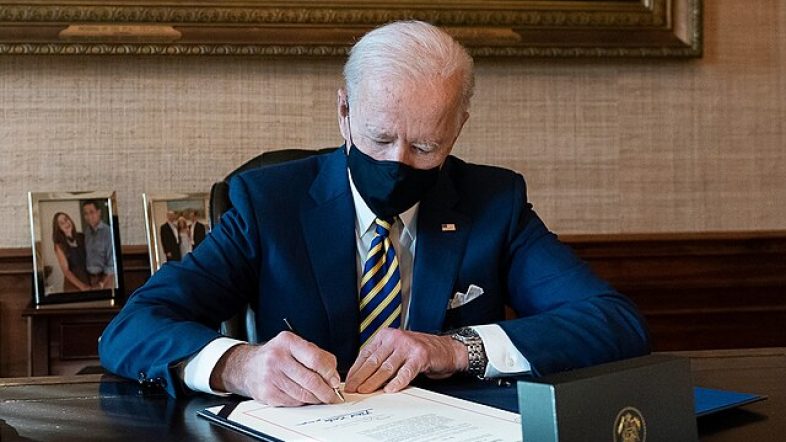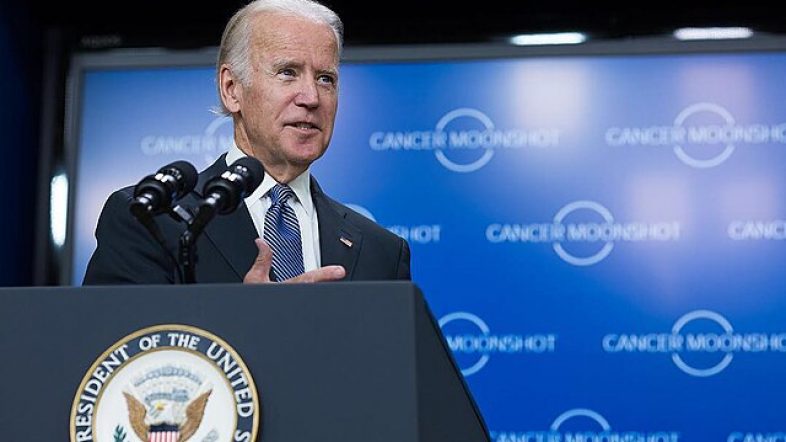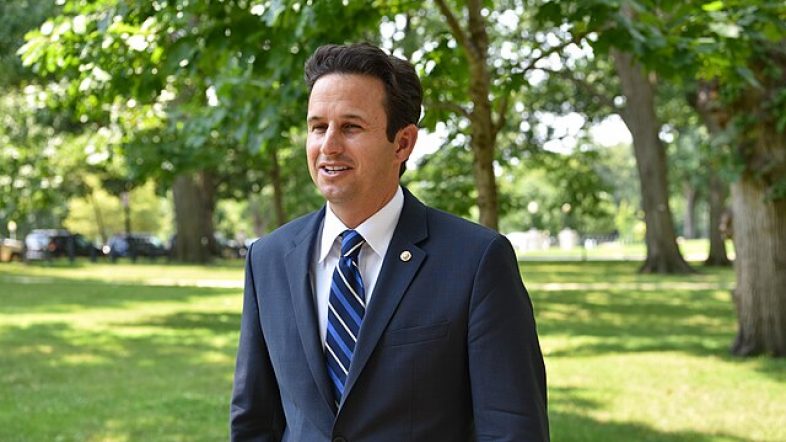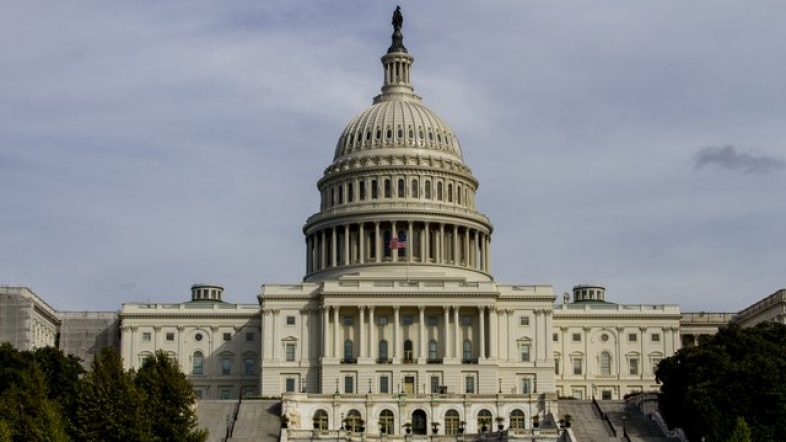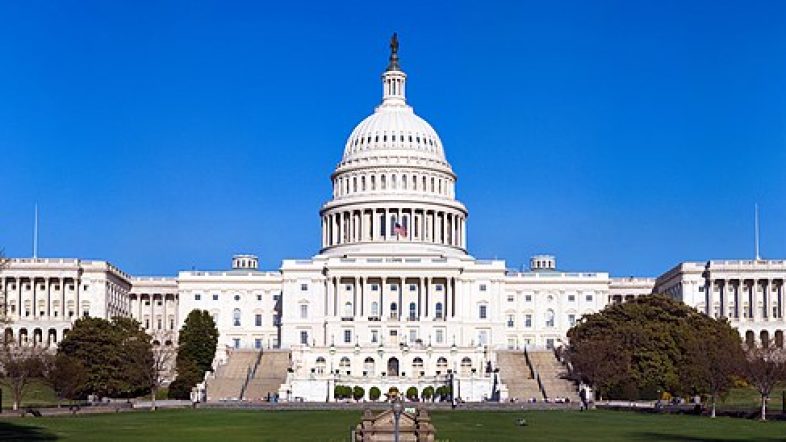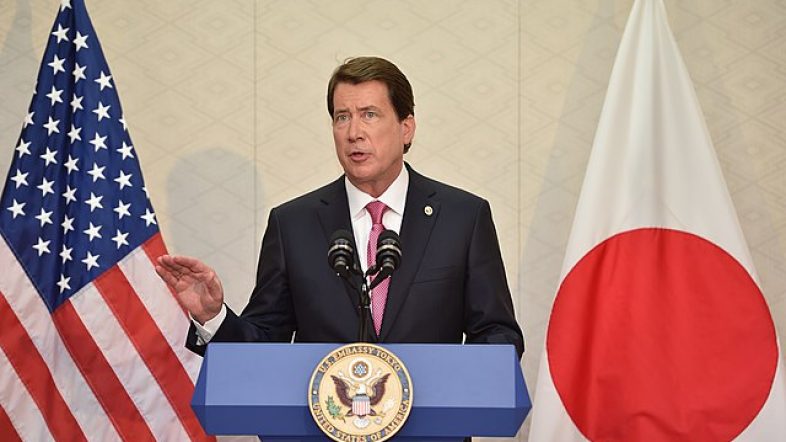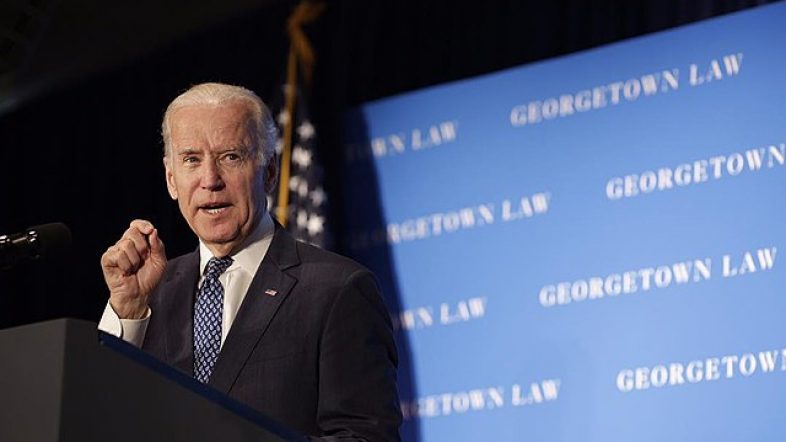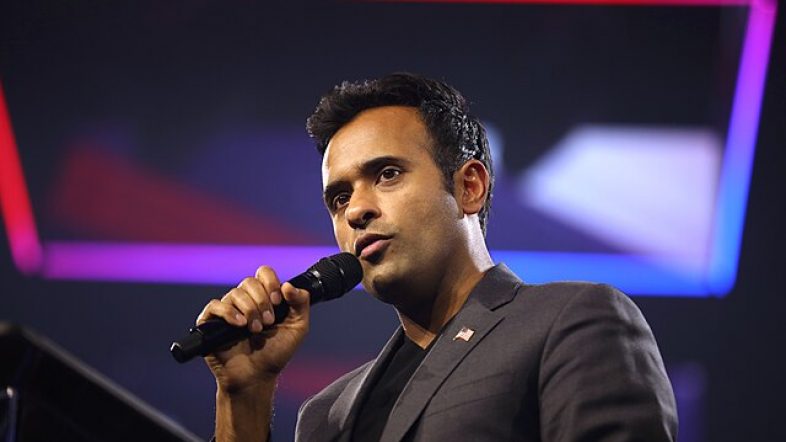While Democrats continue to cast the Supreme Court as dangerous, the line-ups in majority decisions from the recently concluded term don’t support their narrative.
The term’s statistics reflect that rulings don’t always fall on expected ideological lines: out of the 22 decisions with a 6-3 split this term, only half were divided with the six Republican-appointed justices on one side and the three Democrat-appointed justices on the other, according to Empirical SCOTUS. Nevertheless, the term concluded with Democrats slamming the Supreme Court — Democratic New York Rep. Alexandria Ocasio-Cortez going as far as pledging she would file articles of impeachment against the justices — and left-wing groups launching multi-million dollar campaigns to make it a core election issue.
“Since the creation of the Court’s current conservative supermajority in 2020, this term saw the most ideological splits of any term aside from OT 2021 (when the Court decided landmark cases like Dobbs and Bruen),” Dr. Adam Feldman, creator of Empirical SCOTUS, wrote Monday. “Interestingly, while the notion of a (6-3) decision might preclude an inevitable split along ideological lines, this term again proved that to not always be the case.”
Additionally, around 46% of all decisions were unanimous, with the divided rulings coming closer to the end of the term, according to Empirical SCOTUS. These decisions included multiple cases that on face value would appear to be highly contentious: a unanimous Court turned away a challenge to the abortion pill, upheld former president Donald Trump’s eligibility for the 2024 ballot and sided with the National Rifle Association in its First Amendment lawsuit against a New York official.
Still, Democratic Senate Majority Leader Chuck Schumer was one of many this week to suggest that the court is infected with a “MAGA” influence following its ruling on Trump’s immunity appeal.
“This disgraceful decision by the MAGA Supreme Court – which is comprised of three justices appointed by Mr. Trump himself – enables the former President to weaken our democracy by breaking the law,” Schumer said in a statement.
If it were a “right-wing court,” South Texas College of Law Houston professor Josh Blackman argued the abortion pill mifepristone would be off the market and plaintiffs challenging the Biden administration’s censorship efforts would have prevailed. Instead, the majority found in both cases that the plaintiffs did not have standing.
“This is a court [where] conservatives lose quite a bit,” Blackman told the Daily Caller News Foundation. “This is not a right-wing court.”
Justice Amy Coney Barrett authored the 6-3 majority opinion in Murthy v. Missouri, where the Court declined to uphold an injunction preventing the Biden administration from significantly encouraging or coercing social media platforms to censor speech. Chief Justice John Roberts and Justice Brett Kavanaugh joined her opinion, along with the three Democrat-appointed justices.
Where there was the expected ideological split, it was often on cases dealing with administrative law.
“One of the biggest, probably most long-lasting impacts of this term is going to be the Court policing the boundaries of the separation of powers and correcting some places where that has gone astray,” JCN President Carrie Severino told the DCNF.
The 6-3 conservative majority reversed in Loper Bright and Relentless decades-old precedent that gave rise to Chevron deference, a legal doctrine instructing courts to defer to agency interpretations of laws in a manner critics said gave the government an automatic upper-hand in litigation against citizens. It affirmed defendants’ Seventh Amendment right to a jury trial when the Securities and Exchange Commission (SEC) is seeking civil penalties in SEC v. Jarkesy.
The majority also tossed a Trump administration-era ban on bump stocks in Garland v. Cargill, finding the Bureau of Alcohol, Tobacco, Firearms and Explosives (ATF) exceeded its authority when it issued a rule classifying bump stocks as machine guns.
Other cases had a more unusual breakdown: in the Second Amendment case United States v. Rahimi, the Court upheld 8-1 a federal law restricting the subjects of domestic violence restraining orders from possessing firearms.
Kavanaugh wrote the majority opinion in Moore v. United States, which rejected a challenge to a Trump-era tax, and was joined by Roberts, along with Justices Sotomayor, Elena Kagan and Ketanji Brown Jackson.
The discussions in many cases this term show the originalist and textualist Court “coming of age,” Severino said.
“Even the [justices] who are all in on being originalists and textualists might still come to different conclusions, because those approaches don’t mandate specific results in every case,” Severino said.
In the Fischer v. United States case considering the scope of an obstruction statute used to charge Jan. 6 defendants, Barrett sided with Kagan and Sotomayor in a dissent backing the Biden Justice Department’s interpretation of the law. Meanwhile, Jackson joined the rest of the Court’s conservatives in finding the DOJ’s interpretation too expansive.
“I think Justice Barrett is basically the gatekeeper in keeping cases away from the court that she doesn’t want to decide,” Blackman told the DCNF.
Blackman argued a key theme this term was the Court “punting” on significant issues, many of which will “turn” on the election.
For example, the majority punted on the presidential immunity case, leaving the majority of decisions about what are “official acts” subject to immunity to the lower courts. Blackman noted “the case goes away” if Trump becomes president.
Likewise, the Court unanimously held that Colorado cannot remove Trump from its ballot under Section 3 of the 14th Amendment, but declined to answer the question of whether he “engaged in insurrection” — an issue that won’t matter if he wins the election. The justices also sent the Biden administration’s challenge to Idaho’s pro-life law back to the lower courts, declining to rule on the merits of whether the federal Emergency Medical Treatment and Labor Act (EMTALA) compels emergency room doctors to perform abortions.
“They’re sort of kicking the can down the road,” Blackman said.
Independent Vermont Sen. Bernie Sanders joined other Democrats in criticizing the Court this week, calling it “out of control.”
“If these conservative right-wing, corporate-sponsored justices want to make public policy, they should simply quit the Supreme Court and run for political office,” he wrote in a statement.
Severino said critics have to “ignore all of the obvious counterexamples” to argue the Court is politicized.
A left-wing advocacy group that supports court packing, Demand Justice, announced a $10 million campaign Tuesday intended to make the Supreme Court a central issue in the 2024 election, Politico reported. The organization’s senior adviser Skye Perryman told the outlet we have “a court that is not protecting our democratic institutions.”
Another Democrat-aligned group, Stand Up America, likewise announced a $1 million campaign last week to direct voters’ attention to the Supreme Court’s rulings on issues like abortion and gun safety, The New York Times reported.
“The people who are trying to make a case for a politicized court are going to stay it regardless of what the actual results are,” Severino told the DCNF. “They’re not interested in engaging in a serious conversation.”








